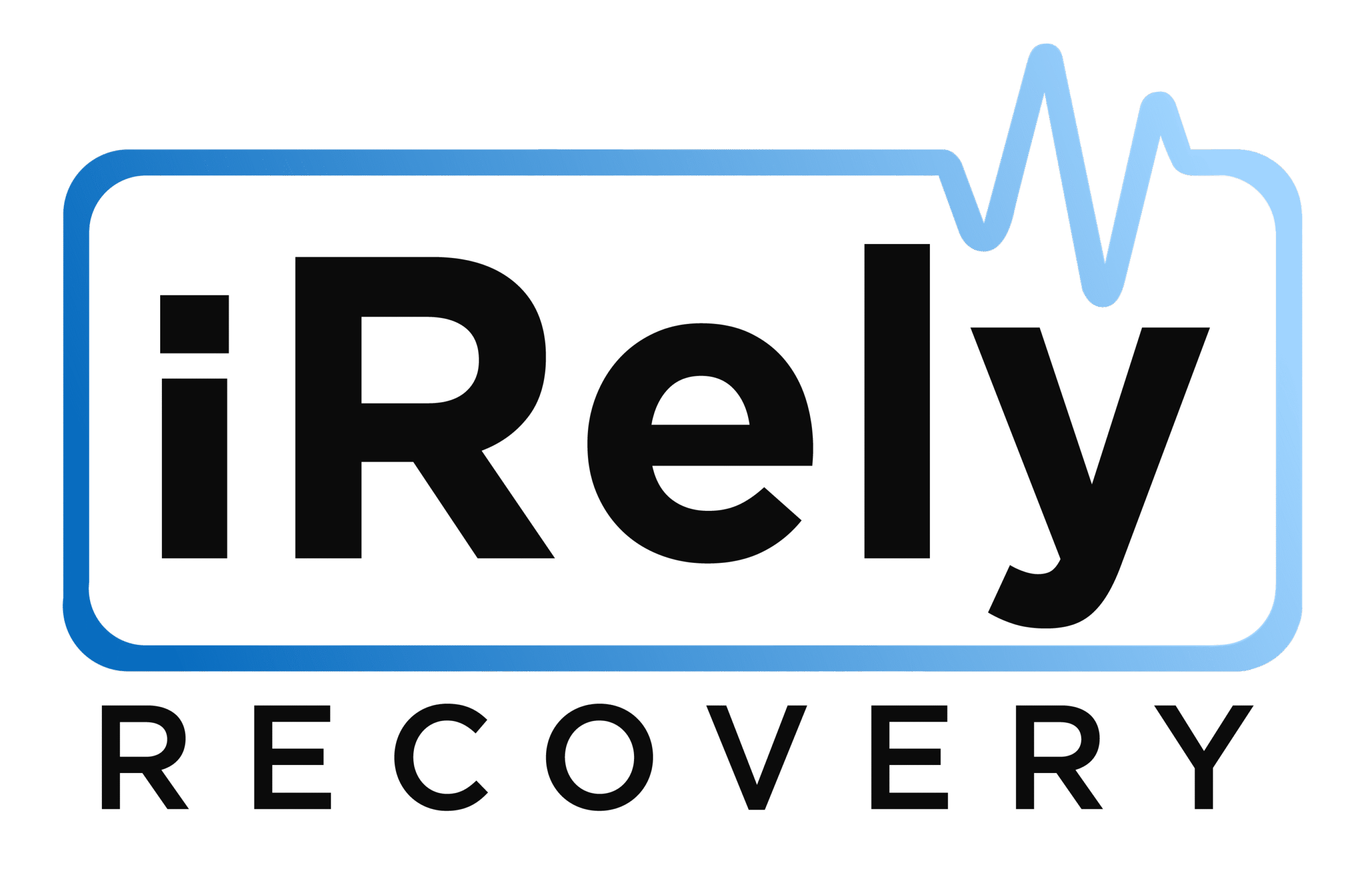Trauma-Informed Addiction Treatment in Los Angeles
Heal the Wounds of Addiction With Compassionate Care
Suffering trauma changes how you cope with life. For many people struggling with addiction, substances became the solution to unbearable memories, overwhelming emotions, or a nervous system stuck in survival mode. Traditional treatment often misses this crucial connection, focusing only on stopping drug use while ignoring the deep wounds underneath.
iRely Recovery in Los Angeles knows that lasting sobriety requires healing both trauma and addiction together. Our trauma-informed approach means every interaction, therapy session, and treatment decision considers how past experiences shape present behaviors. You’ll work with therapists who understand that your substance use often started as self-medication for pain or trauma and help you heal.
THERAPIES & TREATMENT PROGRAMS
What is Trauma-Informed Care?
Trauma-informed addiction treatment recognizes that most people with substance use disorders have experienced significant trauma, whether from childhood abuse, violence, accidents, or other overwhelming events.[1] This approach shifts the question from “What’s wrong with you?” to “What happened to you?” — understanding that addiction often develops as a survival mechanism for managing trauma symptoms.
Trauma therapy for addiction addresses the underlying pain that drives self-medication. Every aspect of treatment operates with awareness that certain words, actions, or environments might trigger trauma responses. Staff trained in trauma-informed care know how to create safety, build trust, and avoid retraumatization while helping you process difficult experiences.
Addiction and trauma therapy work together because they’re often two sides of the same coin. Trauma disrupts your nervous system[2], leaving you hypervigilant, emotionally numb, or swinging between extremes. Trauma-informed care teaches you to recognize these patterns and develop healthier ways to regulate your nervous system. This means learning to identify triggers, understand how trauma lives in your body, and develop coping skills that don’t involve substances.
How (and Why) Trauma-Informed Care for Addiction Works
When trauma goes untreated, the nervous system stays locked in fight-or-flight mode, making sobriety sometimes feel unbearable.[3] Trauma and addiction treatment helps you understand why substances became your coping mechanism — often the only thing that quieted flashbacks, numbed emotional pain, or helped you sleep.
This integrated approach teaches your nervous system that the danger has passed, reducing the constant need to escape through drugs or alcohol. The effectiveness of trauma and drug addiction treatment comes from treating the root causes rather than just the symptoms. Traditional addiction programs that ignore trauma often fail because they leave the underlying pain intact.
Trauma-informed care provides specific tools for managing triggers without substances: grounding techniques for flashbacks, body-based practices for releasing stored trauma, and cognitive strategies for challenging trauma-related beliefs.
The Efficacy of Trauma-Informed Care for Addiction
Recent studies show remarkable improvements when treatment centers adopt fully-integrated trauma-informed models that include specialized screening, trauma-focused therapy, psychoeducation, and coping skills training within standard programming.[4]
Programs tracking outcomes over 12 months find that clients receiving trauma-informed care show sustained improvements in both addiction recovery and trauma symptoms. Staff also report greater job satisfaction and more confidence in treating complex cases.
The success of this model lies in its comprehensiveness — rather than tacking trauma treatment on as an afterthought, it integrates trauma awareness into the core of residential care.
What to Expect from Trauma-Informed Care in Los Angeles
At our Los Angeles treatment center, trauma-informed care is embedded into every layer of the residential experience. Your traumatic experiences are acknowledged and supported alongside substance use treatment:
- Comprehensive trauma screening at admission to identify PTSD, complex trauma, and emotional responses — without retraumatization.
- Dual diagnosis treatment addressing co-occurring disorders like PTSD alongside substance use in integrated care plans.
- Safe, calming environments designed with transparency, choice, and predictability to restore your sense of control.
- Psychoeducation to explain how trauma affects the brain, body, and behavior — connecting the dots between trauma and addiction.
- Body-based coping strategies like grounding techniques, mindfulness, and movement therapy to manage flashbacks and triggers.
- Personalized care that honors your pace and preferences, allowing trauma processing to unfold gently within your level of care.
- Holistic therapies like art, equine therapy, and trauma-informed yoga to support embodied healing.
- Aftercare planning that extends trauma-focused mental health support long after residential treatment ends.
Trauma-Informed Care for Addiction at iRely Recovery
iRely’s trauma-informed program is designed to help you heal both the wounds and the survival strategies that followed. We don’t believe in band-aid solutions that leave you white-knuckling sobriety while trauma still controls your life.
Our experienced team will help you process trauma safely, without judgment, and at a pace that works for you. If the weight of your past feels too heavy to carry alone — we’re here to walk alongside you.
Frequently Asked Questions about Trauma-Informed Addiction Treatment in Los Angeles
Can I Receive Trauma-Informed Addiction Treatment if I Haven't Been Diagnosed with PTSD?
Absolutely. Trauma-informed care at iRely Recovery addresses all types of traumatic experiences, not just those meeting PTSD criteria. Many people with substance use disorders have experienced childhood neglect, emotional abuse, accidents, or other overwhelming events that don’t result in a formal diagnosis but still drive addiction. Our Los Angeles treatment center screens for various trauma types and tailors treatment to your specific experiences.
Will Trauma Therapy Make My Cravings and Substance Use Worse Before It Gets Better?
Our trauma-informed approach carefully paces trauma work to avoid overwhelming you. We teach coping skills and emotional regulation techniques before processing difficult memories, ensuring you have tools to manage any increased emotions. Your therapist monitors your responses closely, adjusting the intensity of trauma work based on your stability. Most clients find that addressing trauma actually reduces cravings as they heal the pain driving substance use.
How is Trauma-Informed Care Different From Regular Addiction Treatment in Los Angeles?
Traditional addiction treatment often focuses solely on stopping substance use, while trauma-informed care recognizes that trauma and addiction are interconnected. Every aspect of our program considers potential triggers and promotes safety. Staff receive specialized training to recognize trauma responses, and we integrate specific trauma therapies like EMDR alongside standard addiction treatment, creating comprehensive healing.
Do You Treat Complex Trauma and Addiction Together During Residential Treatment?
Yes, our dual diagnosis program simultaneously addresses complex trauma, PTSD, and substance use disorders. We understand that separating these issues often leads to relapse, so our integrated approach treats them as connected conditions. You’ll receive specialized trauma therapy while developing sobriety skills, with treatment plans customized to your unique trauma history and addiction patterns.
Sources
[1] National Library of Medicine. (2020). Trauma-Informed Care: A Sociocultural Perspective. Nih.gov; Substance Abuse and Mental Health Services Administration (US). https://www.ncbi.nlm.nih.gov/books/NBK207195/ on May 22, 2025
[2, 3] Substance Abuse and Mental Health Services Administration. (2014). Understanding the Impact of Trauma. National Library of Medicine; Substance Abuse and Mental Health Services Administration (US). https://www.ncbi.nlm.nih.gov/books/NBK207191/ on May 22, 2025
[4] Walter, Z., Carlyle, M., Kerswell, N., Valeriya Mefodeva, Reginald, Cobham, V. E., & Hides, L. (2023). Study protocol: implementing and evaluating a trauma-informed model of care in residential youth treatment for substance use disorders. Frontiers in Psychiatry, 14. https://pmc.ncbi.nlm.nih.gov/articles/PMC10572352/ on May 22, 2025





